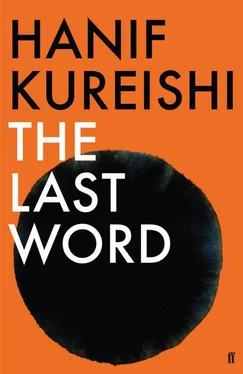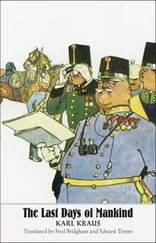‘Good job you’re down here. He’s lucky, my son.’
‘In what way?’
She said, ‘To have work which suits him.’
‘You can’t say fairer than that, Ruth. Clearly a fulfilled life lies ahead of him despite these hard times.’
‘Have you met him?’
‘I don’t think I’ve had that privilege.’
‘You will.’ She went on, ‘Do you think he could work up in London one day?’
‘Why not?’
‘Would you help him, if you could? You must know people who need security.’
‘Indeed.’
‘I’d be ever so grateful. These children had no proper father. The men down here are no good.’
‘Apparently men everywhere are no good, Ruth. But ambition in a young man is a wonderful thing.’
Far from living, as Harry had imagined, in flower-strewn Aga-heated cottages in the verdant enchanted English countryside, the part of the town Julia’s mother directed him to was composed of run-down ugly council houses — many of them boarded up, seemingly abandoned — and shabby graffitied streets. The people looked pasty-faced, slow-moving, ill-kempt, both dozy and violent. Clearly the fathers had scarpered, or been driven out by unemployment, or by the women. Harry seemed to have discovered an island run by teenagers: a semi-violent English poverty and hopelessness unrelieved by years of government investment. You wouldn’t leave your car here, let alone your family.
When the sister emerged, she also sat in silence, her lunch in a plastic box on her knee. To avoid any unnecessary enquiries, Harry dropped off the women halfway up the track. Looking up, as he handed Ruth the £20 loan she had solicited for ‘expenses’, he had the impression, though he couldn’t be sure from such a distance, that Mamoon was standing at his bedroom window, adjusting his collar, his hooded eyes seeming to lift and sparkle with mischievous interest.
Harry hurried into the kitchen to make coffee. Liana looked at him, but said nothing. Soon after, Ruth, her sister, and Julia arrived and began pulling up the carpets and plunging their arms into the toilets. Harry would go to the barn and continue work, for another day, on Peggy’s letters and diaries.
But he went to his room first, to change. While he was doing so, he heard a knock on the door.
‘Harry?’ Mamoon’s gentle tap alarmed Harry, and he dropped the papers he was holding. ‘I need to see you.’
‘You do, sir?’
‘Oh yes. Can we talk later this morning? Will you be available?’
‘Talk? That’s why I’m here, sir, getting under your feet like vermin, as you put it the other day.’
‘See you in the library, my friend, insh’allah . I’m looking forward to it.’
‘You are?’
‘Why not? There’s much to say.’
This was a surprise; Mamoon had never before solicited Harry’s company. He either wanted to put the record straight about something, which was unlikely, or Harry was going to be kicked out.
Distracted, tired and guilty after his exertions with Julia, Harry was also concerned he hadn’t got far with his most recent questions to Mamoon, which were about Mrs Thatcher. Why, Harry had asked, would Mamoon like someone with no discernible culture, and who had driven Britain towards vulgarity and consumerism? Besides, anyone would have thought that a scribbling Indian would be the last thing Thatcher would have liked. Apparently, she enjoyed Mamoon’s company, and he had been asked to visit her late at night, in Downing Street. A few days ago Harry had got Mamoon to say that Thatcher ‘stood up to the mob’ and to ‘pointless demagogues like Scargill’, and that ‘Margaret liked men.’ While a scoop about Mamoon’s private conversations with Thatcher would have helped the book, Mamoon wouldn’t say more.
Now, in an attempt to think about how to approach Mamoon more profitably, Harry took off to the woods with Yin and Yang, who could run all day. He said to Alice on the phone, ‘This is turning bad. Mamoon has given me only titbits. I’ve got a thousand facts and dates, but who wants that? What am I to do, my love? How can I really open him up?’
Harry had known he would have to ask Mamoon questions he wouldn’t have put to his friends or, indeed, to any other man. There were many aspects of his friends, and indeed of his girlfriends, that Harry, with English restraint, didn’t want any knowledge of. Forgetting, along with hypocrisy, were, to him, the necessary arts central to living, just as they clearly were to Mamoon. Why then, he wondered, of all things, had he decided to become a literary biographer — someone who sought the truth of another and wished to remake them in his own words? Was this what he should be doing, or would he have been better off as a coastguard, as one of his brothers had recently suggested?
In London last weekend, strolling with his father in Richmond Park, he had consulted him about making progress with Mamoon. The old man said, ‘Persistence is the key, surely you must have learned that from me? If you want to treat a schizophrenic, for instance, particularly one who is more or less catatonic, the only prescription is time and close attention. And you have to enter the fantasy rather than attempt to refute it. It could take months or years before you get anywhere. Sometimes you get nowhere. Not only that, the patients try to make you crazy. They want to deposit their illness in you. At the same time, the doctors get very annoyed with the patients for not getting better, and often punish them, just as teachers become impatient with their pupils. The truth is, Harry, in these relationships there’s a lot going on even when nothing seems to be going on. The sane have always envied the mad for their freedom and ecstasy. Look at your mother,’ he said, ‘she could be adorable, and was adored. But all our love and attention couldn’t keep her alive.’
‘Can I ask you now — I’ve never said it. Did you love her?’
‘I did, Harry. She loved other men. I don’t happen exactly to believe in the bourgeois marriage settlement, a form designed to limit sexuality, and which obviously demands too high a price. But she made it difficult for me. She was curious about the world, she was a believer: it was her weakness. If she wanted to know someone, she just followed them, any faker or fakir, and damn the consequences. She disappeared; we were mad with worry; but she came back after a week saying she’d hung out with some DJs in Brighton. You know some of this? Did the boys tell you?’
‘Pretty much.’
He didn’t want to tell his father that he still dreamed about a family holiday in Italy, when he went to his mother’s room to find the door ajar. Looking through, he saw her in bed with a man. They were lying still; he was in her arms. Her clothes were on the floor, but her shoes, oddly enough, were together on a chair — either, he wondered, as a sort of exhibit, or for their own safety. Harry pushed the door a little and went into the room. His mother jumped up, pulling a sheet over herself; the man was exposed. She screamed at Harry to get out.
He ran away, and when he saw her a few hours later she was unaffected, and didn’t mention it. He knew then there was another mother within the mother he believed he knew, and after that he wondered often when he would see his real mother again. But which one would it be? Had she deliberately given him erections by lazily rubbing eczema cream into his skin?
He learned from his brothers that he had escaped awareness of the worst of her extremity, though he assisted when their mother searched the house for bugs and closed the curtains against spies. When that didn’t keep them away, she stowed her three boys in the car and drove them singing, a bottle of vodka in one hand — water was poisoned — to Scotland to escape an abuser. When she went to the police station to report him, her children saw her held in handcuffs, taken away to a locked ward where she was drugged, only to be returned to the family months later, in a worse state.
Читать дальше












